Top 18 Artificial Intelligence Applications in 2024
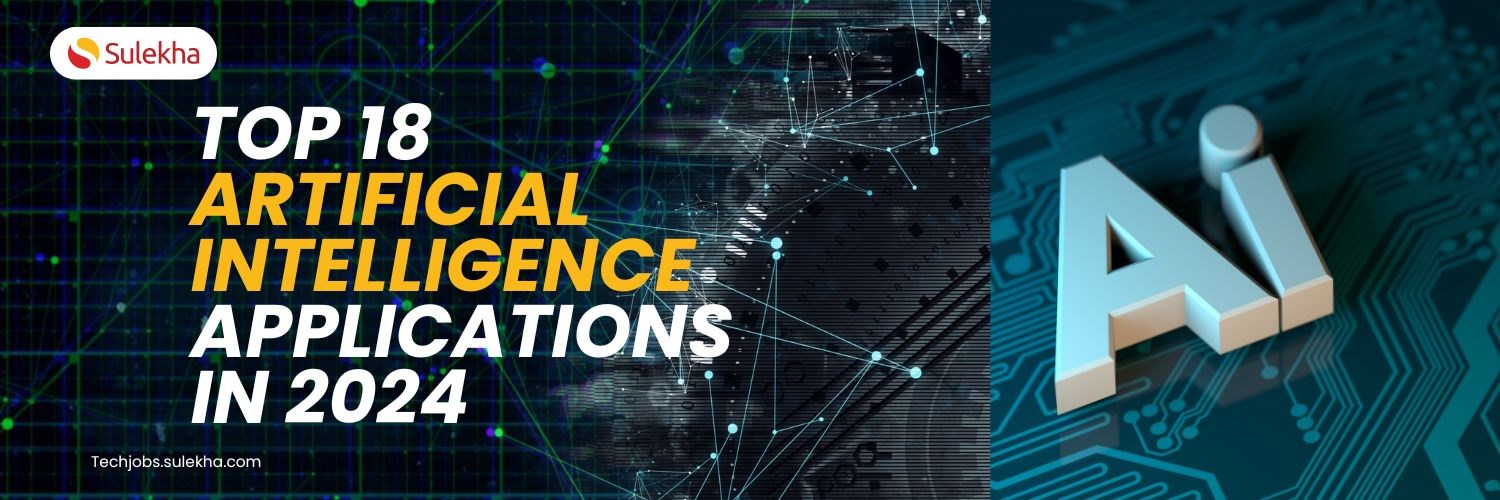
In this blog, we shall excavate into AI applications and their demand across diverse industries. Moreover, you will explore how AI programs leverage Artificial Intelligence to perform tasks that traditionally require human intelligence. Additionally, you will examine examples of artificial intelligence and how to use artificial intelligence.
Why is AI demanding?
AI is a demanding career path because it requires a deep understanding of complex algorithms, machine learning, and data analysis. The field constantly evolves, with new technologies and techniques being developed rapidly. Pursing Artificial Intelligence certification will aid them explore career path across various industries.
Additionally, the demand for AI talent is high, with companies across various sectors seeking to harness the power of AI to improve their products and services. As a result, AI professionals are often in high demand and can command competitive salaries. Overall, the challenging nature of the work and the potential for high rewards make AI a demanding and competitive career path.
What is Artificial Intelligence?
Artificial Intelligence (AI) is the simulation of human intelligence processes by machines, especially computer systems. These processes include learning, reasoning, problem-solving, perception, and language understanding. AI technologies are used to automate tasks, recognize patterns, and make decisions, and are increasingly being integrated into various industries and everyday life.
Goals of AI:
1. To create machines that can perform tasks that typically require human Intelligence, such as understanding natural language, recognizing patterns, and making decisions.
2. To develop AI systems that can learn and adapt from experience, improving their performance over time without human intervention.
3. To use artificial intelligence effectively, identify a specific task or problem in your domain, gather relevant data, choose an appropriate AI technique (such as machine learning or natural language processing), train the model, and integrate it into your system or application for automated decision-making or improved performance.
AI Facts and Figures
· According to Statista, the revenue of the AI market is anticipated to reach 126 billion dollars by 2025
· As per Gartner, most of the top companies or organizations executed artificial intelligence, which rose to 37%. Comparatively, the percentage of AI proliferates to 270% over four years.
· According to Servion Global Solutions, due to AI empowerment, customer interaction can be integrated with the aid of AI, increasing by 95% by 2025.
· As of the report stated by Statista in 2020, the AI global market is expected to increase by 54% and reach USD 22.6 billion.
Applications of Artificial Intelligence:
AI Application in E-Commerce
Personalized Shopping
AI analyzes user behavior, preferences, and purchase history to identify patterns and recommend products that similar users have liked. This aid in enhancing customer relationship and the loyalty of the brand
AI-Powered Assistants
Virtual shopping assistants and chatbots aid in improving online shopping. Natural Language Processing interacts with the customer efficiently like a human and engages with customers.
Did you know? Amazon decided to handle customer service through chatbots.
Fraud Prevention
Many E-Commerce companies face significant issues in credit card fraud and fake reviews due to the storage of customer data. To avoid this complication, we can consider usage patterns that help AI reduce credit card fraud. Moreover, using AI helps reduce fake reviews and build customer relationships with those who prefer to buy products or services.
Applications Of Artificial Intelligence in Education
The proliferating demand for AI in education has become a great advantage. In the education sector, AI began to print its feet, and this change has brought various advancements in learning. This drastic transformation has reduced human effort and increased the efficiency of learning methods for learners. Due to this advancement, students can learn quickly and interactively with the visually appealing content.
Some of these applications in this sector include:
Administrative Tasks Automated to Aid Educators
Artificial Intelligence (AI) has the potential to assist educators in various non-educational responsibilities, such as facilitating and automating personalized communication with students, managing administrative tasks like grading paperwork, coordinating and facilitating interactions with parents and guardians, providing routine issue feedback, and overseeing enrollment, courses, and human resources-related topics.
Creating Smart Content
With the aid of AI, we can create video-based content, lectures, conferences, etc. Moreover, we can use AI applications or AI programs to create animation-based content that helps students of all grades learn interactively and fast. Applications of artificial intelligence help in generating audio and video-based lessons.
Voice Assistants
AI enhances Voice Assistants in the education sector by enabling personalized learning experiences. It tailors educational content based on individual student needs, offers interactive lessons through voice interaction, and provides real-time feedback to optimize learning. Additionally, AI-driven voice assistants contribute to accessibility, assisting students with diverse learning styles and abilities.
Personalized Learning
By leveraging advanced AI technologies, it is possible to employ hyper-personalization techniques for comprehensive monitoring of students' data, including their habits, lesson plans, reminders, study aids, flash notes, and frequency of review. These techniques facilitate the effortless generation of such resources.
Applications of Artificial Intelligence in Lifestyle
The impact of Artificial Intelligence applications on our daily lives is substantial. Let us engage in a discussion about a select handful of them.
Autonomous Vehicles
Automobile manufacturing companies like Waymo (Alphabet/Google), Tesla, Uber, ATG (Advanced Technologies Group), Cruise (General Motors), NVIDIA employ machine learning to train machines to think and act like humans when driving in any environment and object detection to avoid accidents.
Spam Filters
AI enhances spam filters by utilizing machine learning algorithms to analyze vast amounts of data, learning patterns, and characteristics associated with spam emails. This enables the filter to adapt and improve, accurately identifying and blocking spam while minimizing false positives. Advanced techniques such as natural language processing and anomaly detection further strengthen the effectiveness of AI-powered spam filters in safeguarding email inboxes.
Facial Recognition
Facial recognition techniques, implemented through face filters, are employed by popular electronic devices such as smartphones, laptops, and personal computers. These techniques serve the purpose of detecting and identifying individuals, facilitating safe access to these devices. In addition to its applications, facial recognition is extensively employed as an Artificial Intelligence technology in various industries, particularly those requiring boosted security measures.
Recommendation System
The recommendation system is employed by many platforms necessary to our daily routines, such as e-commerce websites, entertainment platforms, social media networks, and video-sharing platforms like YouTube. Its primary purpose is to collect user data and generate personalized recommendations, enhancing user engagement. This Artificial Intelligence application is extensively utilized across several sectors.
Applications of Artificial Intelligence in Navigation
According to a Massachusetts Institute of Technology (MIT) study, GPS technology can provide users with precise, prompt, and comprehensive data, enhancing safety measures. The technique is employed by Convolutional Neural Networks and Graph Neural Networks, improving user convenience through automated identification of lane quantities and road classifications obscured by road impediments. Uber extensively leverages artificial intelligence (AI) technology with other logistics partners to enhance operational efficiency, conduct road traffic analysis, and optimize routes.
Applications of Artificial Intelligence in Robotics
Robotics is another field where Artificial Intelligence applications are commonly used. AI-powered robots use real-time updates to sense obstacles in their path and pre-plan their journey instantly.
It can be used for:
· Carrying goods in hospitals, factories, and warehouses
· Cleaning offices and large equipment
· Inventory management
Applications of Artificial Intelligence in Human Resource
In Human Resources, Artificial Intelligence streamlines recruitment processes by automating resume screening and candidate matching, saving time and enhancing efficiency. AI tools help analyze employee data for workforce planning, identifying skill gaps, and optimizing team structures. AI-powered chatbots assist in handling routine HR inquiries, improving employee engagement and satisfaction. Additionally, AI-driven sentiment analysis aids in gauging employee morale and proactively addressing potential issues.
Applications of Artificial Intelligence in Healthcare
Artificial Intelligence in healthcare enables precise diagnostics through image and pattern recognition, improving accuracy and speed in disease identification. AI algorithms analyze vast datasets to personalize treatment plans, optimizing patient care. AI-powered chatbots and virtual health assistants enhance patient engagement, providing information and support. Predictive analytics in healthcare AI aids in early disease detection, reducing healthcare costs and improving public health outcomes.
Applications of Artificial Intelligence in Agriculture
With Artificial intelligence, we can determine defects and nutrient deficiencies in the soil. AI is used to study weed growth patterns through robots, computer vision, and machine learning applications. Artificial intelligence (AI) bots have the potential to enhance crop harvesting efficiency by increasing both the quantity and speed of production, surpassing the capabilities of human laborers.
Applications of Artificial Intelligence in Gaming
The gaming sector has become another domain where Artificial Intelligence applications have gained significant attention. Artificial intelligence (AI) has the potential to be employed in the development of intelligent non-player characters (NPCs) that possess human-like qualities, enabling them to engage in interactive experiences with players.
The game incorporates two distinct Artificial Intelligence (AI) systems: the 'Director AI' and the 'Alien AI.' The 'Director AI' can ascertain the player's location consistently. At the same time, the 'Alien AI' operates through a combination of sensors and behaviors designed to pursue and engage the player perpetually.
Applications of Artificial Intelligence in Social Media
AI is utilized to consider your likes and the number of accounts you follow to find what posts you display on your explore tab.
AI is used in Facebook to enhance user experience through personalized content recommendations, targeted advertising, and content moderation.
Twitter uses AI for content recommendation, sentiment analysis, spam detection, enhancing user experience, and moderating platform content.
Applications of Artificial Intelligence in Marketing
Applications of Artificial Intelligence in Marketing are the best examples of artificial intelligence.
· With the aid of AI, marketers can post ads with the aid of behavioral analysis and pattern recognition in machine learning. This helps target people at the right time and provides better results.
· AI helps create a better and unique quality of intended content for the user.
· Artificial intelligence (AI) enables chatbots to understand natural language processing, generation, and natural language and respond accordingly. To learn about NPL, you can enroll in Natural language processing certification course.
· Artificial intelligence (AI) can offer customers immediate personalizations by analyzing their behavior. Additionally, AI may modify and enhance marketing efforts to cater to a local market's specific requirements.
Applications of Artificial Intelligence in Chatbots
Artificial Intelligence (AI) plays a pivotal role in the diverse applications of chatbots. By leveraging Natural Language Processing (NLP), AI-driven chatbots engage in more human-like conversations, making them effective in customer support scenarios. Beyond resolving queries, chatbots contribute to lead generation in e-commerce, facilitate employee training, and enhance business internal communication. Furthermore, their applications extend to healthcare, social media engagement, and acting as personal assistants, showcasing the versatility and transformative impact of AI-powered chatbot technologies across various industries.
Applications of Artificial Intelligence in Finance
It is stated that 80% of the banks realized the benefits of AI. Integrating advanced artificial intelligence (AI) technology can significantly enhance financial services, including personal, corporate, and consumer finance.
For example, Customers seeking assistance with wealth management solutions can conveniently access the necessary information via AI-powered SMS text messaging or online chat platforms. Artificial Intelligence can identify alterations in transaction patterns and detect possible fraudulent activities, which may elude human perception. AI can efficiently protect organizations and individuals from incurring substantial financial losses. In addition to its applications in fraud detection and task automation, artificial intelligence (AI) has the potential to enhance the accuracy and evaluation of loan risks.
AI in Astronomy
In the world of technology, we have experienced many applications across various sectors like healthcare, eCommerce, and finance.
When it comes to astronomy, its ability to analyze massive datasets at unprecedented speeds significantly expedites the extraction of valuable insights from observations made by telescopes and satellites. Machine learning algorithms, empowered by AI, enable automated categorization of celestial objects, helping astronomers accurately identify galaxies, stars, and other phenomena.
AI in Data Security
A prevalent viewpoint among individuals is that Artificial Intelligence (AI) holds significant importance in the current and forthcoming landscape of the technology industry. Many business executives use AI for many things, such as offering valuable services and future-proofing their organizations.
Artificial Intelligence (AI) is a cornerstone in data security strategies, providing advanced threat detection and mitigation capabilities. Through machine learning algorithms, AI systems continuously analyze vast datasets to identify patterns associated with cyber threats, enabling swift and proactive responses. Behavioral analysis, a key component of AI-driven security, establishes baseline user behavior, facilitating the rapid detection of anomalous activities indicative of security breaches. AI also plays a crucial role in automating responses to security incidents, ensuring real-time countermeasures to mitigate risks. Additionally, AI enhances cryptographic processes, improving the efficiency and strength of encryption methods. At the same time, innovative techniques like biometric recognition contribute to robust user authentication, fortifying access controls, and overall data protection.
Identifies Unknown Threats
AI excels in identifying unknown threats by leveraging machine learning algorithms that continuously analyze vast datasets for unusual patterns and behaviors. Through anomaly detection, AI systems can swiftly pinpoint deviations from established norms, flagging potential threats that may go unnoticed by traditional security measures. This proactive approach enables the identification of emerging and novel threats, bolstering cybersecurity defenses against evolving risks. AI's ability to adapt and learn from new data ensures a dynamic defense mechanism capable of addressing unknown threats in real time, enhancing overall security resilience.
Flaw Identification
AI aids in flaw identification by utilizing advanced algorithms to analyze code and system behaviors, automatically detecting vulnerabilities and weaknesses. Through static and dynamic analysis, AI-driven tools can pinpoint potential flaws in software, providing developers with insights to address security issues before deployment. This proactive approach enhances software security, minimizing the risk of exploitation and contributing to the creation of more robust and resilient systems. Using Machine Learning, AI can precisely discover cybersecurity weaknesses, faults, and other problems.
Threat Prevention
Cyber security vendors are constantly developing artificial intelligence (AI) technology. In its advanced version, AI is designed to detect flaws in the system or even the update. It’d instantly exclude anybody attempting to exploit those issues. AI would be an outstanding tool for preventing any threat from occurring. It may install additional firewalls and rectify code faults that lead to dangers.
AI in Travel and Transport
1. Route Optimization: AI algorithms analyze real-time traffic data, suggesting the most efficient routes for transport services, reducing travel time and fuel consumption.
2. Predictive Maintenance: Machine learning predicts maintenance needs for vehicles and infrastructure, minimizing downtime and improving the reliability of transportation systems.
3. Customer Service: Chatbots and virtual assistants powered by AI provide instant travel information, booking assistance, and personalized recommendations, enhancing customer interactions.
4. Demand Forecasting: AI analyzes historical data to forecast travel demand, helping companies adjust services, schedules, and pricing strategies for better resource utilization.
5. Security: AI systems enhance security through facial recognition, anomaly detection, and predictive analytics, ensuring the safety of travelers and infrastructure.
AI in the Automotive Industry
Artificial Intelligence (AI) is a driving force transforming vehicles into intelligent entities in the automotive industry. AI is crucial for autonomous driving, utilizing advanced sensors and machine learning algorithms to navigate, make real-time decisions, and enhance overall safety. Predictive maintenance powered by AI analyzes vehicle data, allowing for proactive identification and resolution of potential issues.
In conclusion, the landscape of artificial intelligence applications in 2024 showcases a dynamic fusion of innovation and practicality. From healthcare and finance to education and entertainment, AI redefines how we interact with technology, solve complex problems, and improve decision-making processes. As these applications evolve, the transformative potential of AI in enhancing efficiency, personalization, and problem-solving across diverse industries remains a driving force in shaping the future of technology.
Find a course provider to learn Artificial Intelligence Engineer
Java training | J2EE training | J2EE Jboss training | Apache JMeter trainingTake the next step towards your professional goals in Artificial Intelligence Engineer
Don't hesitate to talk with our course advisor right now
Receive a call
Contact NowMake a call
+1-732-338-7323Enroll for the next batch
Artificial Intelligence Engineer
- Jan 28 2026
- Online
Artificial Intelligence Engineer
- Jan 29 2026
- Online
Artificial Intelligence Engineer
- Jan 30 2026
- Online
Related blogs on Artificial Intelligence Engineer to learn more

Artificial Intelligence – A Growing Field of Study for Modern Learners
Artificial Intelligence is becoming a top study choice due to high job demand and future scope. This blog explains key subjects, career opportunities, and a simple AI study roadmap to help beginners start learning and build a strong career in the AI
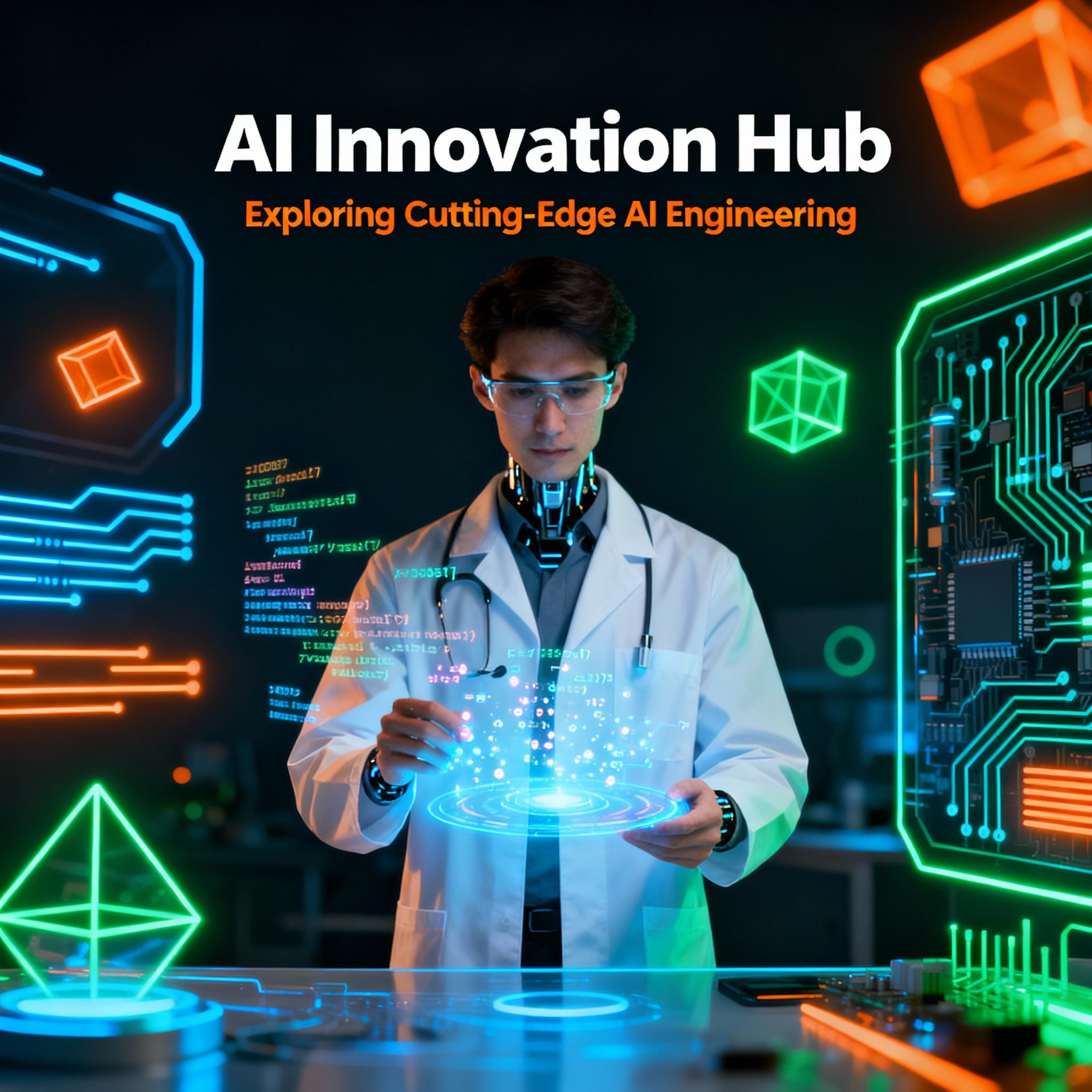
Train Like an AI Engineer: The Smartest Career Move You’ll Make This Year!
Why AI Engineering Is the Hottest Skillset Right Now From self-driving cars to chatbots that sound eerily human, Artificial Intelligence is no longer science fiction — it’s the backbone of modern tech. And guess what? Companies across the USA and Can
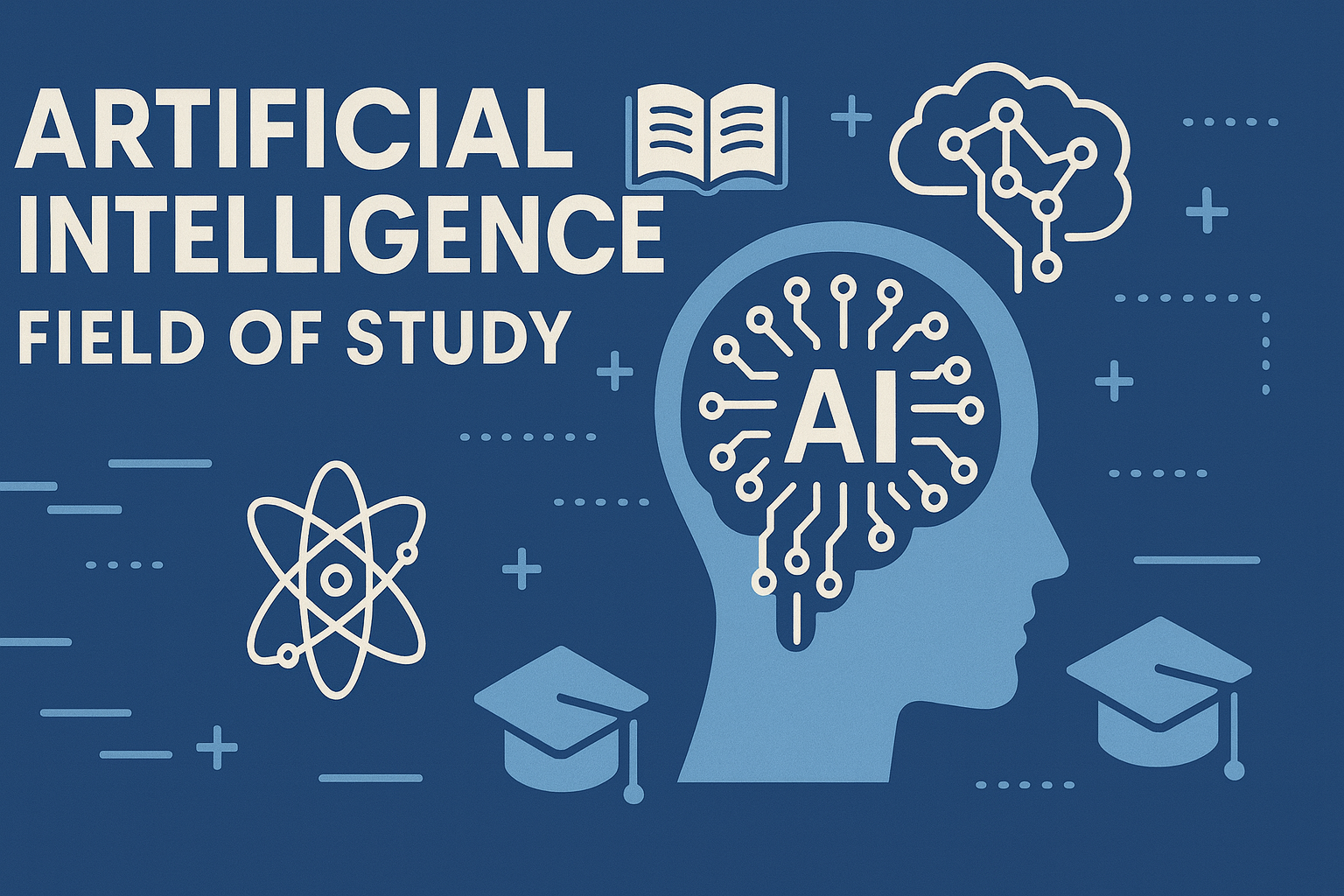
Artificial Intelligence – Field of Study
Explore how Artificial Intelligence blends Machine Learning, Deep Learning, NLP, and Computer Vision to build intelligent systems that learn, reason, and decide. Discover real world applications, ethics, and booming career scope as AI education deman
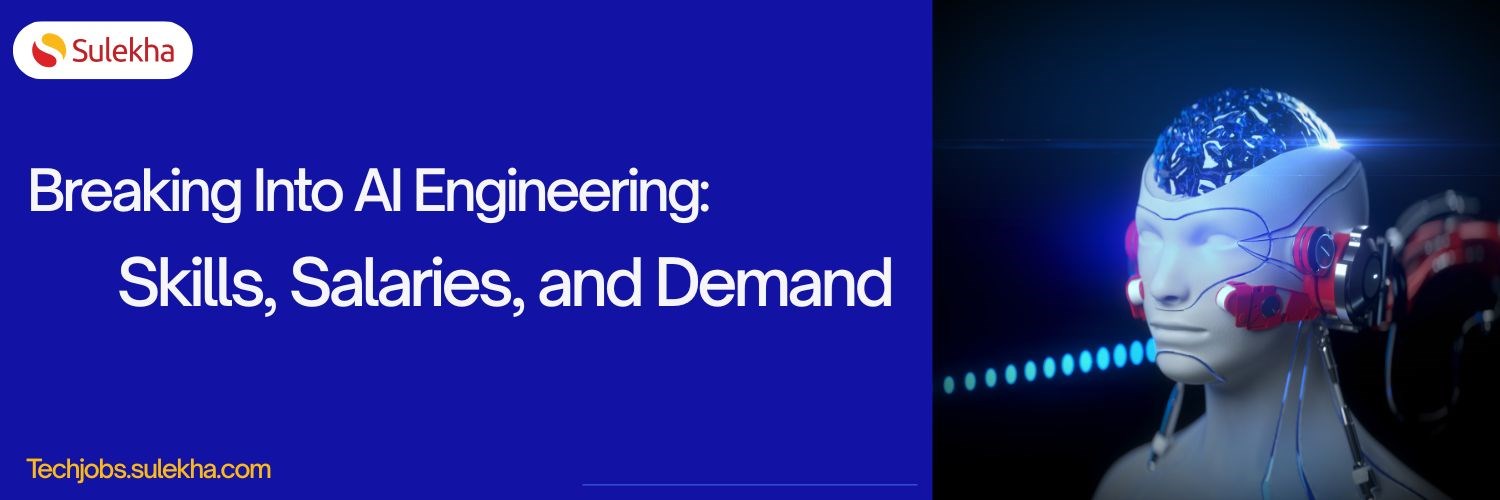
Breaking Into AI Engineering: Skills, Salaries, and Demand in the US
Discover how to break into AI engineering with insights on essential skills, salary expectations, and rising demand in the US. Learn about career paths, certifications, and how to succeed in one of tech’s fastest-growing fields.
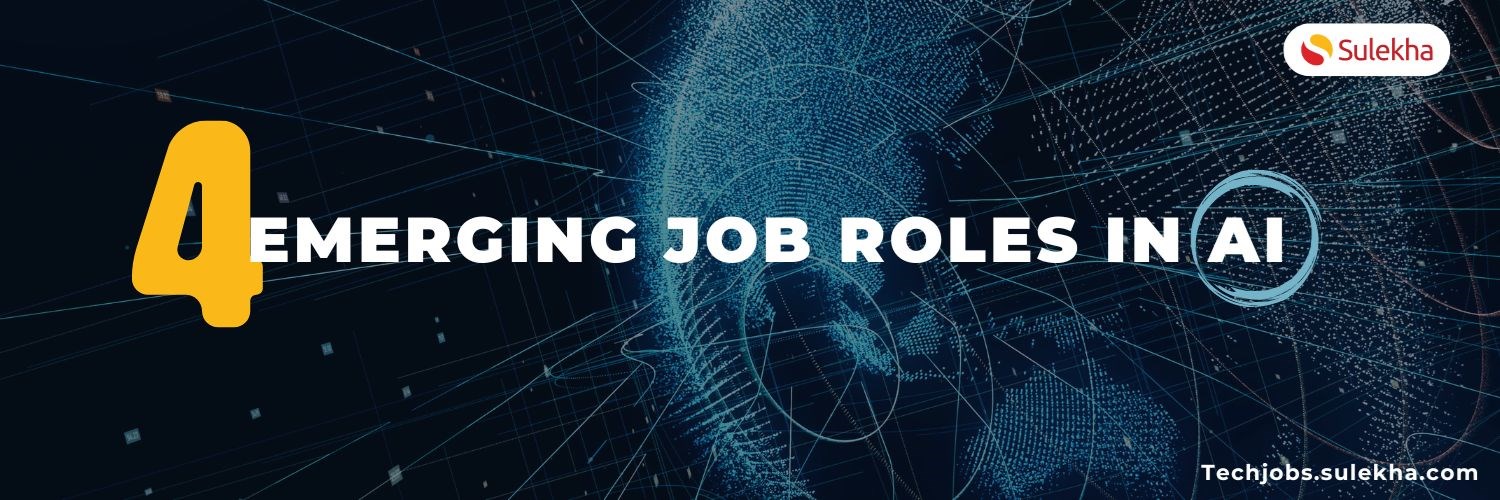
Top Four emerging job roles in AI
Explore four emerging AI job roles including AI ethicist, trainer, interaction designer, and safety engineer, each shaping the future of ethical and secure AI technology. Learn about their responsibilities and the essential skills required in this ev

Prompt Engineering
We have discussed comprehensive entitles of what is prompt engineering, types of prompts, element and method of prompt engineering, and application of prompt engineering in-detail.
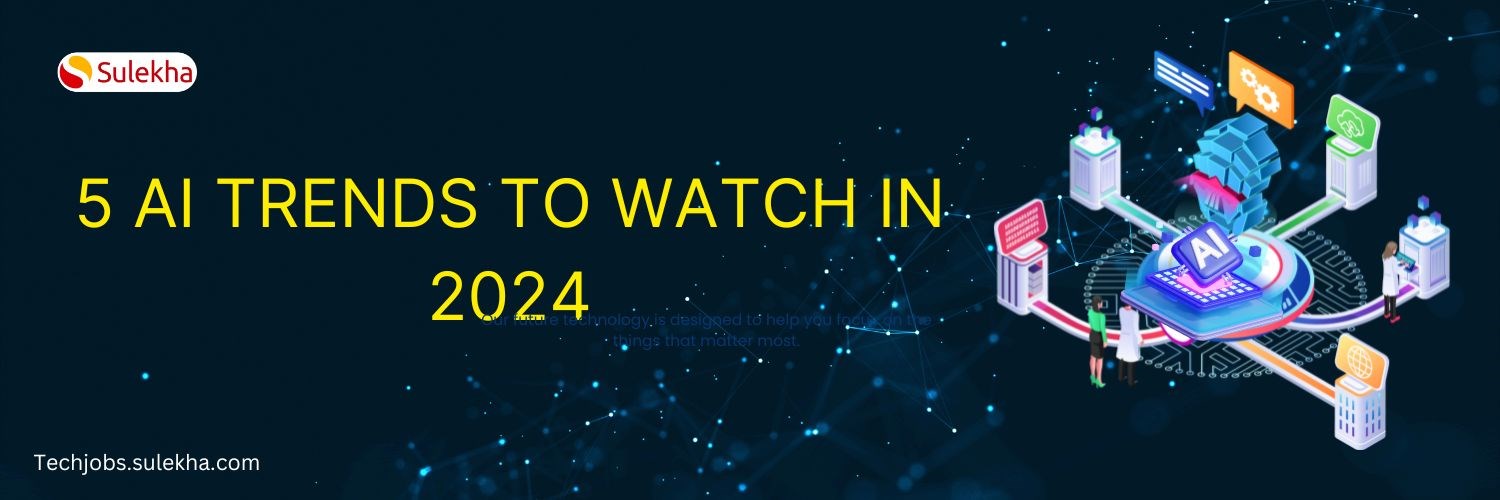
5 AI Trends to Watch in 2024
Discover the top 5 AI trends that will shape the future in 2024, from advancements in natural language processing to the growing impact of AI on healthcare and beyond.
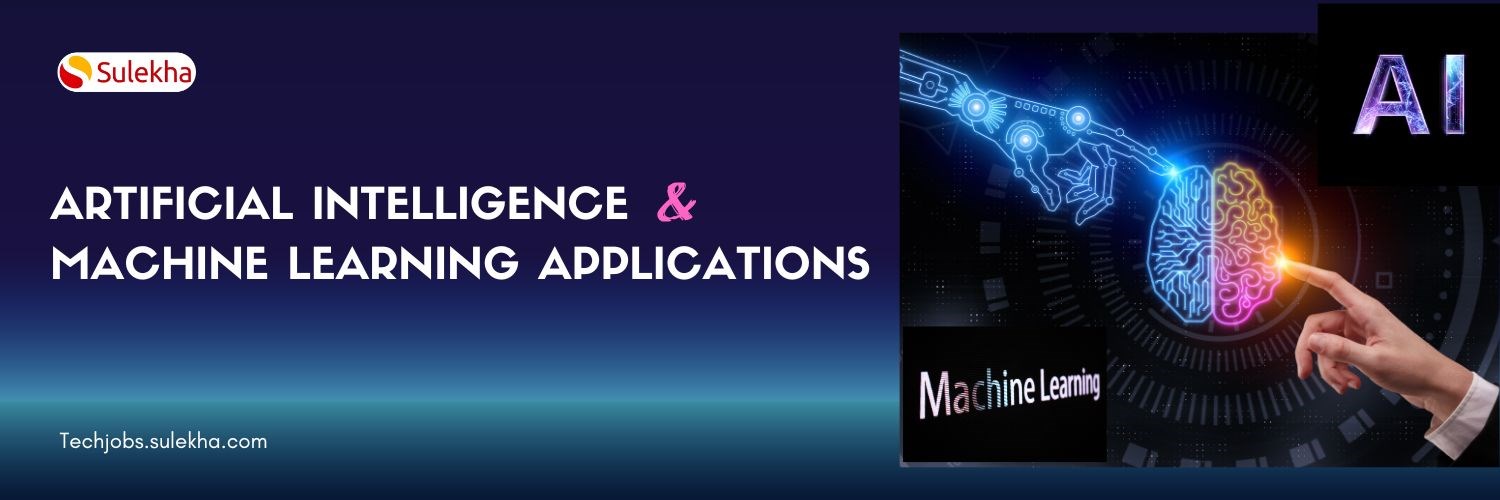
Artificial Intelligence and Machine Learning applications
Discover the vast applications of Artificial Intelligence (AI) and Machine Learning (ML) across various industries, from healthcare to finance, and learn how these technologies are transforming the way we live and work.
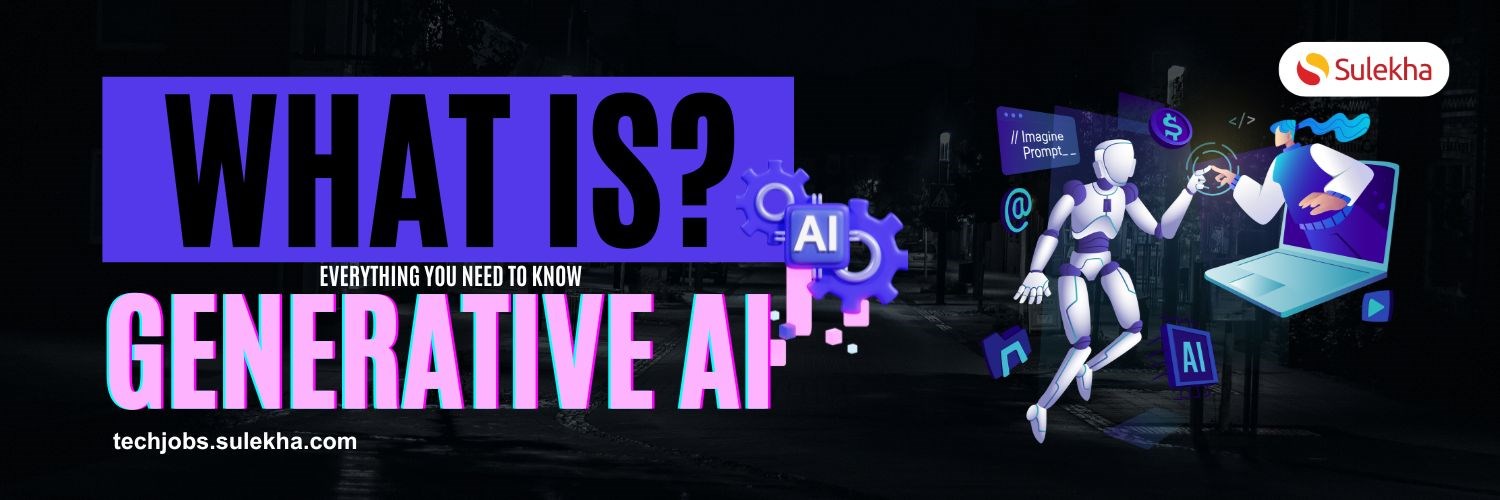
What is Generative AI? Everything You Need to Know
Generative AI is not just a career path; it's a gateway to a future where innovation and creativity intersect. This blog uncovers why generative AI is not just a career but a pathway to shaping the future of work.

Devin AI - Friend or Foe of Software Developers
In a groundbreaking leap for artificial intelligence, US-based startup Cognition has unveiled Devin AI - an autonomous AI system capable of conceptualizing, designing, and coding software from scratch. This remarkable feat ushers in a new era, blurri
Latest blogs on technology to explore

Drug Safety & Pharmacovigilance: Your 2026 Career Passport to a Booming Healthcare Industry!
Why This Course Is the Hottest Ticket for Science Grads & Healthcare Pros (No Lab Coat Required!)" The Exploding Demand for Drug Safety Experts "Did you know? The global pharmacovigilance market is set to hit $12.5B by 2026 (Grand View Research, 202

Launch Your Tech Career: Why Mastering AWS Foundation is Your Golden Ticket in 2026
There’s one skill that can open all those doors — Amazon Web Services (AWS) Foundation
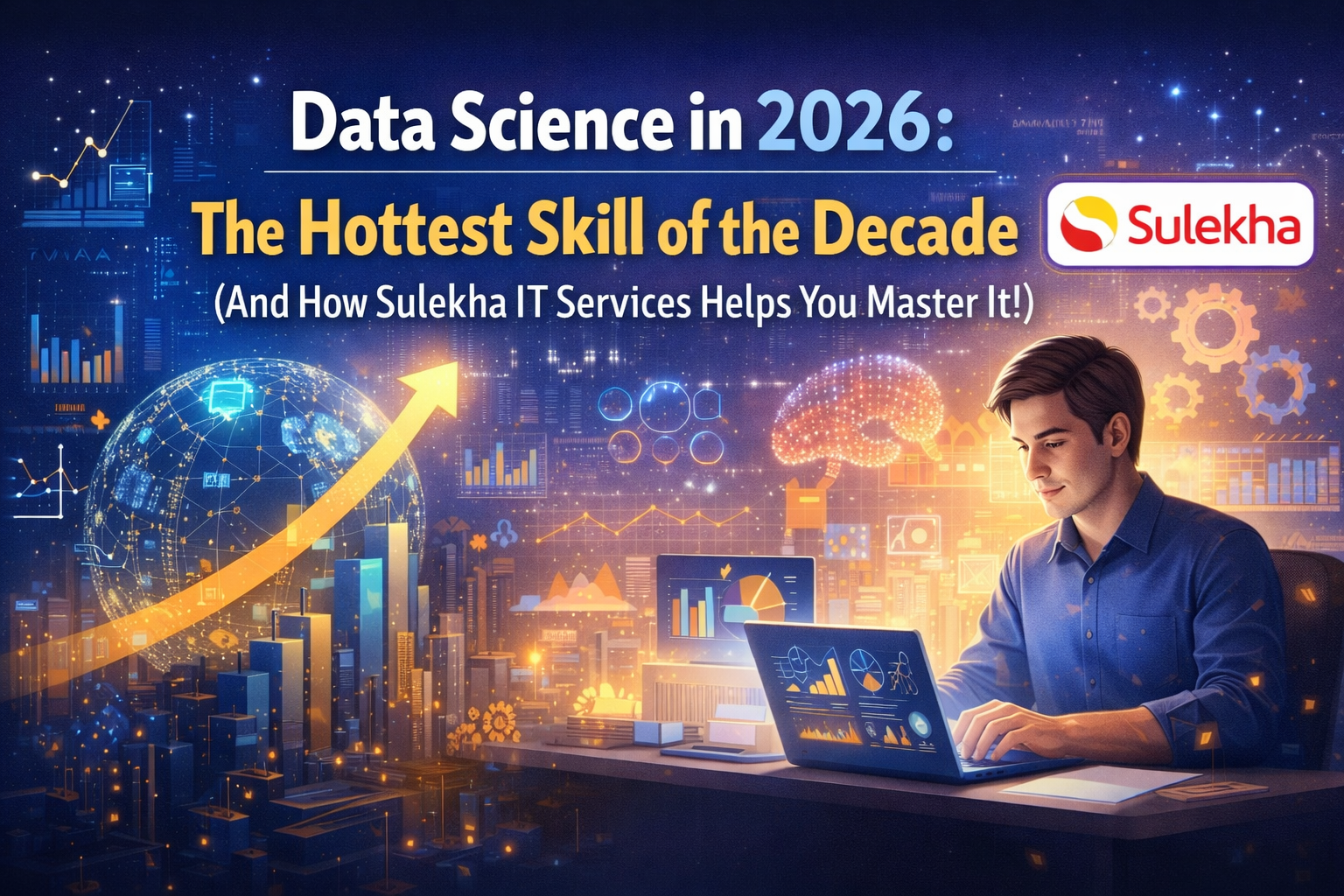
Data Science in 2026: The Hottest Skill of the Decade (And How Sulekha IT Services Helps You Master It!)
Data Science: The Career that’s everywhere—and Nowhere Near Slowing Down "From Netflix recommendations to self-driving cars, data science is the secret sauce behind the tech you use every day. And here’s the kicker: The U.S. alone will have 11.5 mill

Salesforce Admin in 2026: The Career Goldmine You Didn’t Know You Needed (And How to Break In!)
The Salesforce Boom: Why Admins Are in Crazy Demand "Did you know? Salesforce is the 1 CRM platform worldwide, used by 150,000+ companies—including giants like Amazon, Coca-Cola, and Spotify (Salesforce, 2025). And here’s the kicker: Every single one

Python Power: Why 2026 Belongs to Coders Who Think in Python
If the past decade was about learning to code, the next one is about coding smarter. And in 2026, the smartest move for any IT enthusiast is learning Python — the language that powers AI models, automates the web, and drives data decisions across ind

The Tableau Revolution of 2025
"In a world drowning in data, companies aren’t just looking for analysts—they’re hunting for storytellers who can turn numbers into decisions. Enter Tableau, the #1 data visualization tool used by 86% of Fortune 500 companies (Tableau, 2024). Whether

From Student to AI Pro: What Does Prompt Engineering Entail and How Do You Start?
Explore the growing field of prompt engineering, a vital skill for AI enthusiasts. Learn how to craft optimized prompts for tools like ChatGPT and Gemini, and discover the career opportunities and skills needed to succeed in this fast-evolving indust

How Security Classification Guides Strengthen Data Protection in Modern Cybersecurity
A Security Classification Guide (SCG) defines data protection standards, ensuring sensitive information is handled securely across all levels. By outlining confidentiality, access controls, and declassification procedures, SCGs strengthen cybersecuri

Artificial Intelligence – A Growing Field of Study for Modern Learners
Artificial Intelligence is becoming a top study choice due to high job demand and future scope. This blog explains key subjects, career opportunities, and a simple AI study roadmap to help beginners start learning and build a strong career in the AI

Java in 2026: Why This ‘Old’ Language Is Still Your Golden Ticket to a Tech Career (And Where to Learn It!
Think Java is old news? Think again! 90% of Fortune 500 companies (yes, including Google, Amazon, and Netflix) run on Java (Oracle, 2025). From Android apps to banking systems, Java is the backbone of tech—and Sulekha IT Services is your fast track t